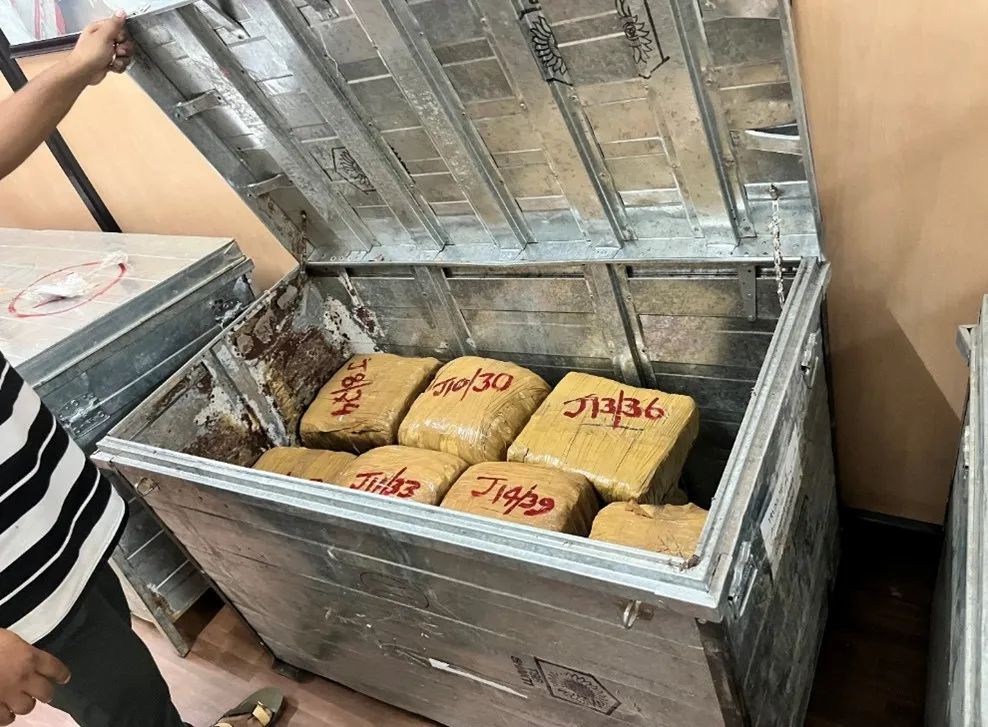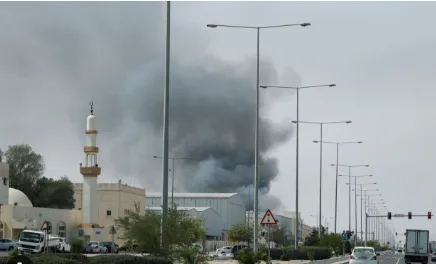Abu Dhabi [UAE], March 1: The United Arab Emirates Ministry of Defence has announced that the air force and air defence forces have successfully intercepted a significant number of aerial threats following a large-scale Iranian attack that commenced on 28 February.
In a statement shared on X, and subsequently reposted by the Indian Embassy in Abu Dhabi, the Ministry confirmed that the military has "so far dealt with 165 ballistic missiles, two cruise missiles and 541 Iranian drones since the start of the Iranian attack."
This regional escalation comes amid heightened tensions in West Asia following joint missile strikes titled Operation Roaring Lion/Operation Epic Fury by Israel and the United States on Iran.
Explosions were reported in Tehran and other major cities, with US President Donald Trump and Iranian state media claiming that Supreme Leader Ayatollah Ali Khamenei was killed in the strikes, alongside his daughter, grandchild, daughter-in-law, and son-in-law. However, an Israeli newspaper reported that there is no official word on the fate of Khamenei himself.
Providing a detailed breakdown of the defensive operations on the second morning of the assault, the UAE Ministry stated that its forces "destroyed 20 ballistic missiles, while eight missiles fell into the sea," in addition to destroying "two cruise missiles and 311 drones."
Despite these efforts, officials noted that "21 drones struck civilian targets."
The Ministry affirmed its robust capability, explaining that since the beginning of the offensive, "152 [ballistic missiles] were destroyed, while 13 fell into sea waters."
Out of 541 detected Iranian drones, "506 were intercepted and destroyed, while 35 fell within the country, causing material damage."
Tragically, these incidents resulted in "three fatalities of Pakistani, Nepali and Bangladeshi nationalities," and "58 minor injuries" among various nationalities, including Indians.
The Indian Embassy in Abu Dhabi addressed the status of an affected Indian national via X, stating: "The Embassy is aware of the injury to the Indian national and is in touch with the hospital authorities. The Indian national is out of danger. We are rendering all possible assistance."
The retaliatory strikes by Iran follow its vow of "the most devastating offensive operation" against US bases and Israel.
The Iranian Revolutionary Guard Corps (IRGC) pledged revenge, claiming attacks on 27 bases hosting US troops in West Asia and Israeli facilities in Tel Aviv.
Reports of strikes also emerged from Dubai, Doha, Bahrain, and Kuwait, while an oil tanker was struck off the coast of Oman, causing widespread flight cancellations and diversions.
Following Saturday's strikes, Israel stated on Sunday that it is attacking targets "in the heart of Tehran."
Meanwhile, international media outlets documented contrasting public reactions inside Iran.
CNN and Fox News reported celebrations in several cities, including Besat Town, with slogans of "Death to the Islamic Republic" and "Long live the Shah."
Former Israeli spokesperson Eylon A Levy and activist Masih Alinejad shared footage of Iranian women dancing in the streets after hearing of the strike on the Supreme Leader.
Earlier, US President Trump announced the death of Khamenei on Truth Social, calling it "justice for the people of Iran" and stating that "pinpoint bombing... will continue, uninterrupted throughout the week or, as long as necessary to achieve our objective of PEACE."
As Iran's Supreme Leader's office declares 40 days of national mourning with flags at half-mast, authorities have heightened security in major cities to prevent unrest.
Attention is now focused on the process of selecting a successor to Khamenei, whose 37-year tenure has reached a definitive turning point, while the UAE Ministry of Defence reiterated that "the safety of citizens, residents and visitors remains a top priority that cannot be compromised." (ANI)

